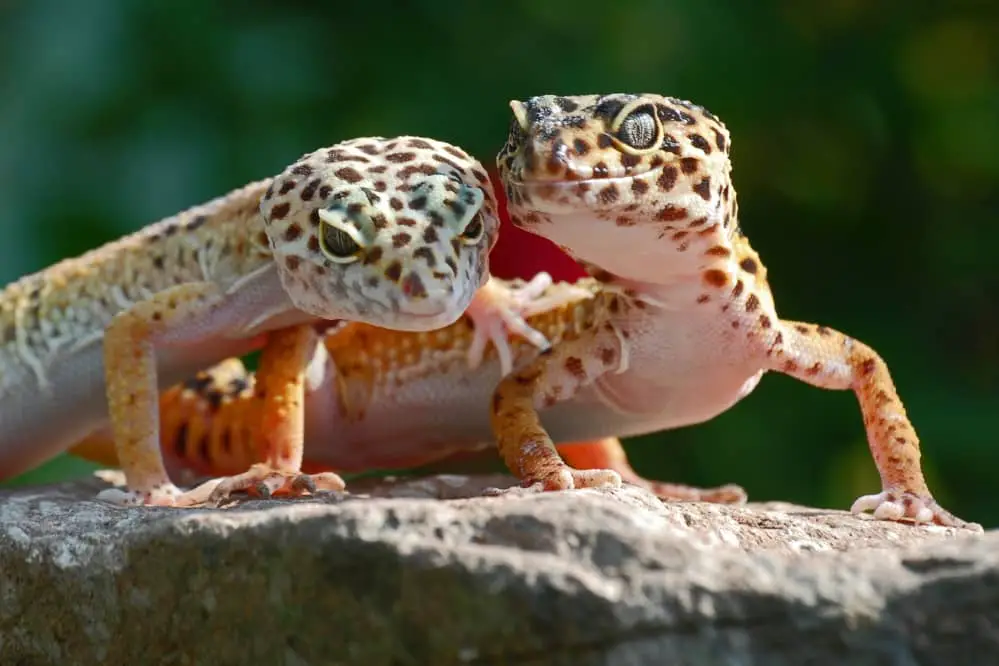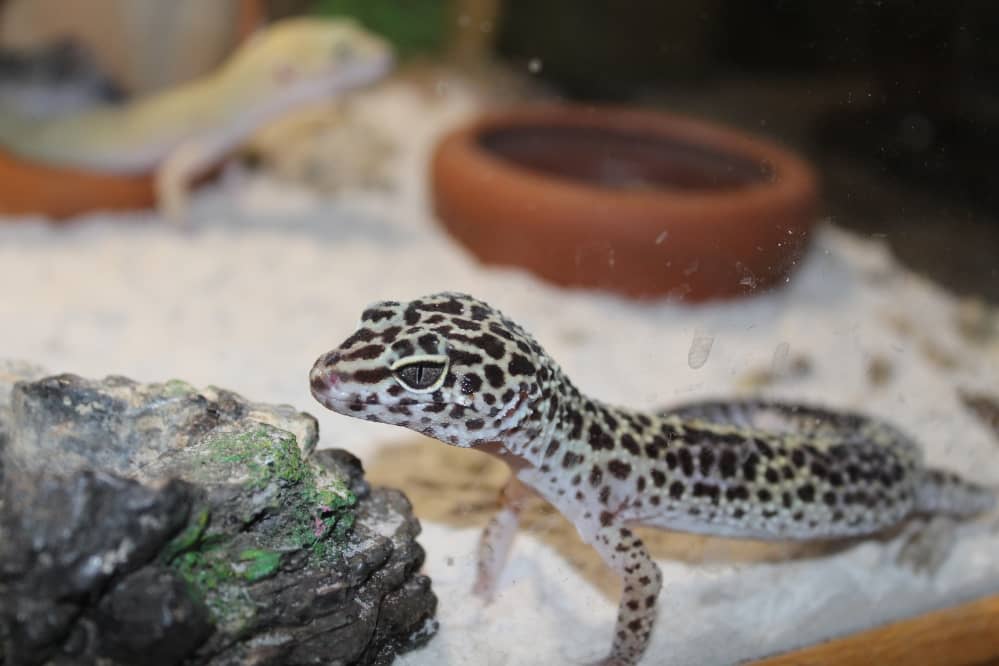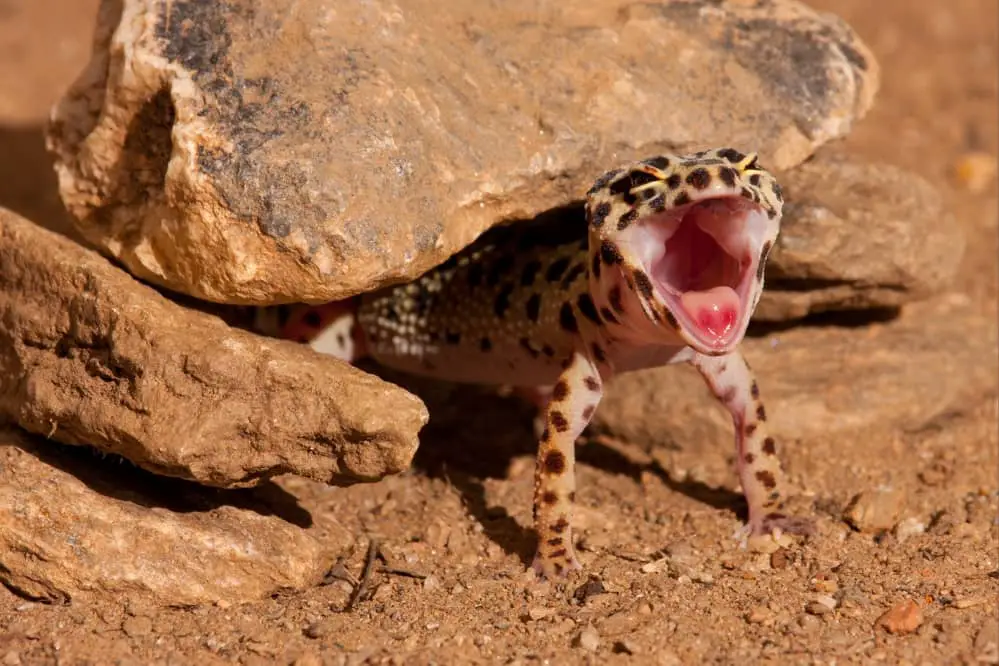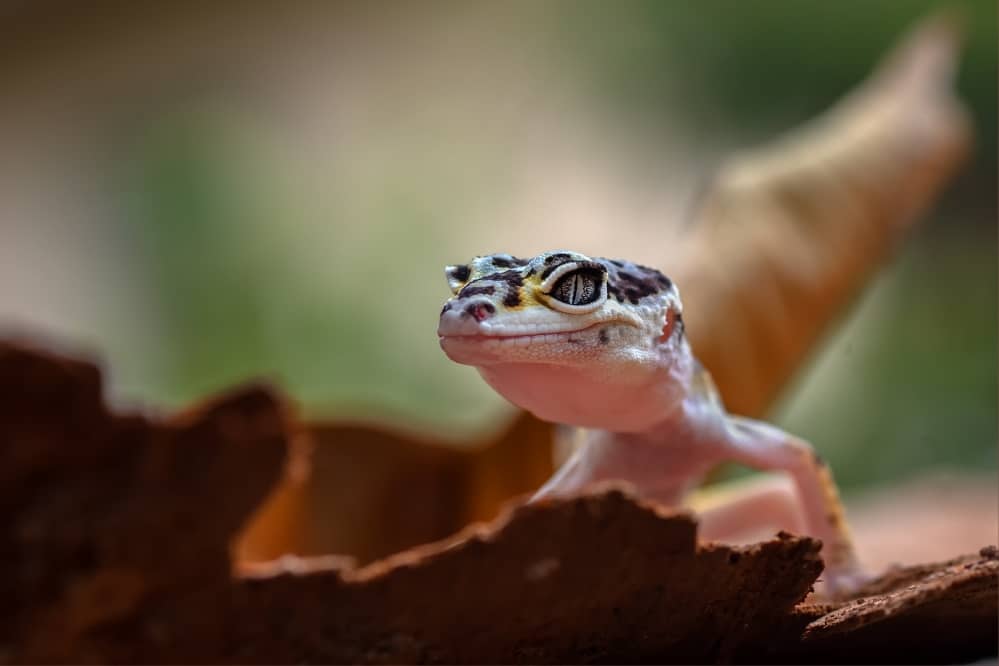It’s a popular myth that leopard geckos don’t make noise or sounds because they are reptiles and tiny animals, however, this is far from the truth. Leopard geckos do make a variety of noises, and these noises are not unintentional; they have a purpose.
In general, Leopard geckos can produce up to four different noises or sounds. All of these noises have a purpose, whether it is to communicate with other geckos or to express emotions like fear, joy, hunger, or others. Leopard geckos frequently make noises such as chirping, barking, screaming, and clicking.
This post is for you if you’re curious about the sounds leopard geckos make or if you own one and want to know why it makes certain noises.
Leopard Gecko Sounds And Noises
Leopard geckos make a variety of noises and sounds, some of which are emotional expressions. The following is a list of all the sounds that leopard geckos make:
Chirping/Squeaking
The most typical sound a leopard gecko makes is chirping, which is often referred to as squeaking. Chirping is a somewhat conflicting sound that indicates both happiness and fear. Leopard geckos usually make this sound when they are excited and joyful or when it is feeding time.
Some leopard geckos chirp when they are agitated, sad, or terrified. Leopard geckos may also crip if their live food is stressing or hurting them.

When two or more male leopard geckos are housed together in a single enclosure, chirping can also be heard as an indication of territorial activity or mating aggression.
Leopard geckos will occasionally chirp if they are handled incorrectly or if they are not used to human contact. When a leopard gecko is uneasy in its habitat, it will sometimes chirp.
Clicking
Clicking is the second most common noise produced by a leopard gecko. Clicking is, in general, a sound of discomfort. When they are uncomfortable, irritated, anxious, or unhappy, leopard geckos generate clicking noises. Leopard geckos also make a clicking noise when they are hungry or when they are mishandled.

Clicking is also thought to be a leopard gecko mating call, though this fact is not scientifically validated. Leopard geckos may produce clicking noises if their enclosure is modified or if they have less room to live.
Sometimes rearranging everything inside the enclosure to where it belonged will help your scaly companion click less frequently. When they are hungry and seeking food, certain leopard geckos will make clicking noises.
Barking
The barking of a leopard gecko differs greatly from that of a dog. Leopard geckos very rarely produce barking noise. If a leopard gecko is threatened or in great danger, it might bark.
Leopard geckos may also bark when they are hurt or in pain, though there is no scientific research to support this statement. Some common things or actions that can cause a leopard gecko to bark are as follows:
- If you extend your hand directly from above the tank, your leopard gecko may become frightened because they assume something, such as a bird from above, is trying to capture them. Therefore, be sure to approach properly so that your gecko can see you coming.
- If there are other pets, such as cats and dogs, close by their enclosure, leopard geckos might bark. As they regard them as predators and feel vulnerable in their presence, leopard geckos can become very frightened by these pets. When your leopard gecko is barking, keeping your cat or dog away from the enclosure may be helpful.
- Putting live insects in the leopard gecko’s enclosure can also cause the gecko to start barking. The fact that some insects, such as crickets, can bite geckos and can overwhelm them if there are too many insects in their cage, will make geckos anxious and they might start barking. Ensure that the enclosure of your pet leopard gecko has a few small insects that do not bite.
Screaming
Surprisingly leopard geckos can scream though their scream is a lot different from ours. Screaming, often known as shrieking, is a noise produced by leopard geckos, particularly when they are disturbed or scared.

Leopard geckos that are young and juveniles tend to scream more frequently than adult geckos. Leopard geckos make a rather loud noise when they scream, which is easily audible from a distance.
Young geckos normally scream when they are new to their enclosure, but as time goes on and they become accustomed to their surroundings, the incidence of their screaming decreases. Screaming from your gecko usually indicates that it is in a defensive attitude, so you should handle it with patience.
Do Leopard Geckos Communicate With Each Other?
Leopard geckos do communicate with one another. Instead, they make noises like chirps, clicks, and barks. In addition to making these noises and sounds, leopard geckos communicate with one another by using other body signals, including tail movements.
Do Leopard Geckos Make Noise At Night?
Yes, leopard geckos can make noise at night, and this is not particularly unusual. Any noise, including chirps, barks, screams, and clicks, can be produced by a leopard gecko at any time of day or night. The time of day or night has little influence on the noises made by leopard geckos, rather what gecko feels influences the production of these noises.
Summary
Leopard geckos are capable of producing a wide range of noises and sounds, and they don’t do so unintentionally. Leopard geckos have a motive behind every sound or noise they make; occasionally, it’s to express how they’re feeling. The four main sounds that leopard geckos make are chirping, clicking, barking, and screaming.
Although it may be difficult for a beginner to distinguish between these noises, once you’ve heard them few times, you’ll be able to differentiate between them and figure out what your leopard gecko is trying to express. Leopard geckos can make noises to express a variety of emotions, including happiness, sadness, hunger, fear, aggression, and more.
So, if you hear your leopard gecko making unusual noises, make sure to investigate to ensure that your pet is in good health and if your leopard gecko doesn’t stop producing noises you should get it examined by a veterinarian.

